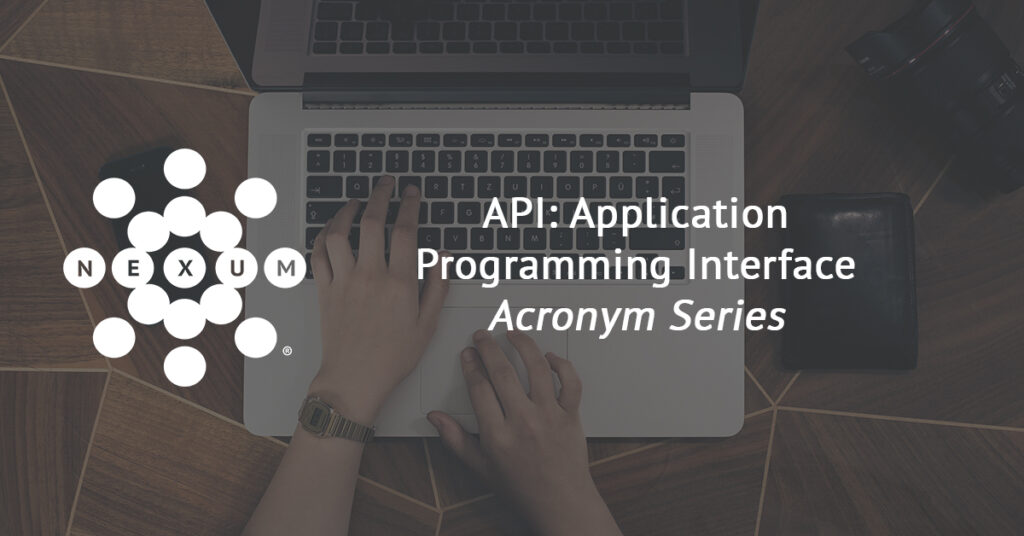
API: Application Programming Interface
Acronym Series

Written by: Tod Martinsen, Senior Security Engineer
Connect with Tod on LinkedIn
In our Acronym Series, Nexum’s expert engineers define the industry’s most popular topics.
Acronym: API – Application Programming Interface
Definition: A structured way for software to exchange data.
Explanation:
APIs were initially conceived to standardize and modularize how software exchanges data with other software and systems. Today many “flavors” of API exist depending on where and how they are used.
Web APIs are used to exchange data over the internet. Software development kits can contain hundreds or thousands of APIs that govern how programs access and use data from storage devices, communications paths, and other essential system resources. Software services provide access to unique data and features through APIs that they make publicly available.
APIs are the building blocks of modern information systems, and a functional or security flaw in them can have a wide-reaching impact. Software developers who rely on commonly published APIs may be impacted when a new security vulnerability is identified. Additionally, making changes to APIs can be complex and time-intensive because many other programs and applications typically depend on the same API functionality.
APIs available for public use are particularly susceptible to abuse and need to be designed and implemented to protect their functionality and data.
Check Out More Resources

Juniper EX4000
Nexum’s, Allyn Crowe, breaks down what sets the latest EX4000 series switch apart—powerful PoE, multigig support for next-gen Wi-Fi, and faster performance. With quick boot times and seamless upgrades, it’s a smart choice for future-proofing networks.

Juniper Announces Wi-Fi 7 Access Points
Nexum’s engineering team highlights Juniper’s new Wi-Fi 7 AP47 as a game-changer, offering faster speeds, quad radios, and enhanced IoT capabilities. With dual 10Gbps interfaces and AI-driven Wi-Fi 7 support, these access points are designed for cutting-edge network performance.

AI-Native Now
Join Juniper Networks on June 5th for a LinkedIn Live exclusive discussion on “Leveraging AIOps for Maximum Impact.”

